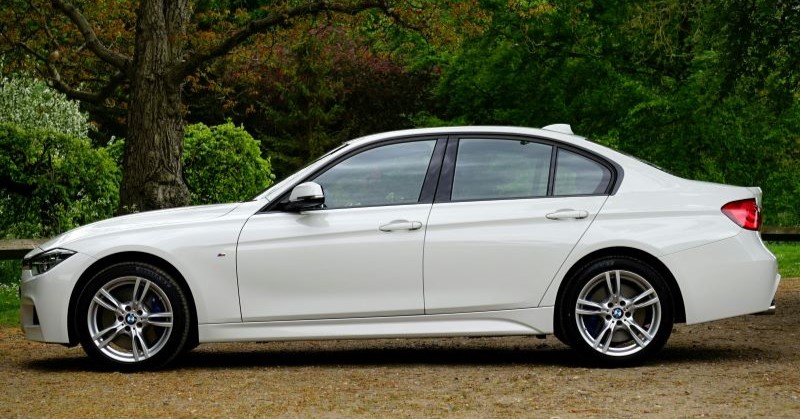Sponsored Content.
Let’s be honest, Donegal is beautiful, but notoriously wet. While we cherish the rolling hills, winding coastal roads, and the invigorating Atlantic breeze, that same breeze can be harsh on your vehicle, particularly your brakes.
If your mechanic has ever pointed out pitting, corrosion, or general wear and tear on your brake disks during a service, despite them seeming fine previously, you’re not alone. It’s a common issue in Donegal garages, and the reason is simple: our weather.
The Problem with Brake Disks in Donegal
Brake disks are those metal rotors that your brake pads grip to bring your car to a halt. They’re typically made of cast iron, prized for its strength and affordability, but unfortunately, it’s highly susceptible to rust in wet and salty conditions. Sound like anywhere familiar? Donegal receives over 1,500 mm of rainfall annually, spread generously across all seasons. Combine that with the salty Atlantic air, particularly if you reside near Bundoran, Dungloe, or the Fanad Peninsula, and you’ve created the perfect storm for corrosion.
Even if your driving is limited to weekly trips to Letterkenny and you’re not located directly on the coast, the pervasive dampness still takes its toll. It creeps into every nook and cranny beneath your car, and brake disks become an easy target.
How Fast Can Disks Rust?
The sobering truth: Surface rust can begin forming on brake disks as quickly as 12 hours after parking in rainy weather. If your car sits in your driveway overnight, it’s likely already developing rust by morning, even if it’s not immediately visible.
That initial light rust isn’t necessarily a major concern. Normal driving will often wear it away. The real problem arises when cars are used infrequently or for only short trips. The disks never fully dry or clear off the rust, which eventually penetrates deeper, leading to pitting (those frustrating grooves and craters mechanics mention).
This is especially problematic for those who primarily drive around town. Low-speed braking doesn’t generate enough heat to evaporate the moisture. Park the car with wet disks, and rust is inevitable.
Donegal Drivers and the Audi A4 B8: A Common Frustration
If you happen to be driving an Audi A4 B8 (2008–2015), a popular choice in Donegal, you might have noticed that your brake disks don’t seem to last as long as expected.
The B8 generation Audi A4s are reliable vehicles, well-suited for Irish roads, but the brake disks for Audi A4 B8 are notorious for rust problems in damp conditions. The caliper design tends to trap moisture against the disk, particularly on the inner edge, where corrosion frequently begins. Combine this with Donegal’s persistent dampness and salty air, and you have a recipe for frequent brake replacements. Local garages often see A4 B8 owners needing new rear disks after only 18,000–25,000 km, significantly less than what’s typical for similar vehicles in drier climates.
How to Protect Your Brake Disks
Now, let’s get down to practical solutions. While we can’t change Donegal’s climate (unfortunately), we can take steps to safeguard our brake disks.
Drive Regularly, and for Sufficient Distances
Frequent short trips are detrimental to brake disks. Aim to take your car for a decent drive at least once a week, perhaps 20–30 minutes along the N56 or towards Gweedore. Allow the brakes to heat up, dry out, and shed surface rust.
Avoid Parking with Wet Brakes
If you’ve been driving in heavy rain or through puddles, try to avoid parking immediately. Drive around the block for a few minutes to dry the disks before switching off the engine.
Consider Upgraded Parts
If you drive an Audi A4 B8 or another vehicle prone to rust, consider investing in coated brake disks. Manufacturers like Brembo and ATE offer anti-corrosion disks with protective coatings designed to withstand challenging conditions. They come at a higher price, but could save you money in the long run.
Regular Cleaning and Inspection
Perform a visual check every couple of weeks to catch rust early. No need to be a mechanic, just take a quick look through the wheels. If a disk surface feels uneven or rough, it’s probably time for a checkup.
Use Your Brakes (Occasionally)
This might sound counterintuitive, but hear me out. When driving slowly downhill in traffic or gently rolling down a slope, you might be tempted to coast or use engine braking to minimize wear. However, occasional brake application helps keep the disks clean. A little is better than none.
The Takeaway
Brake disk rust in Donegal isn’t just bad luck or coincidence. It’s a direct consequence of our environment. The combination of salty sea air, high humidity, and frequent rain creates a corrosive force. While it may not be entirely avoidable, there are definitely steps you can take to extend the life of your brakes.
Whether you’re driving through the Bluestack Mountains or battling a rainy morning in Letterkenny, healthy brake disks translate to safer driving and fewer unexpected repair bills.
And if you’re driving an Audi A4 B8? Pay particularly close attention to those rear disks. Great cars, but they struggle with our weather just as much as the rest of us do.
Rust, brakes and Irish weather: How Donegal’s climate kills brake disks (and how to avoid it) was last modified: June 16th, 2025 by


